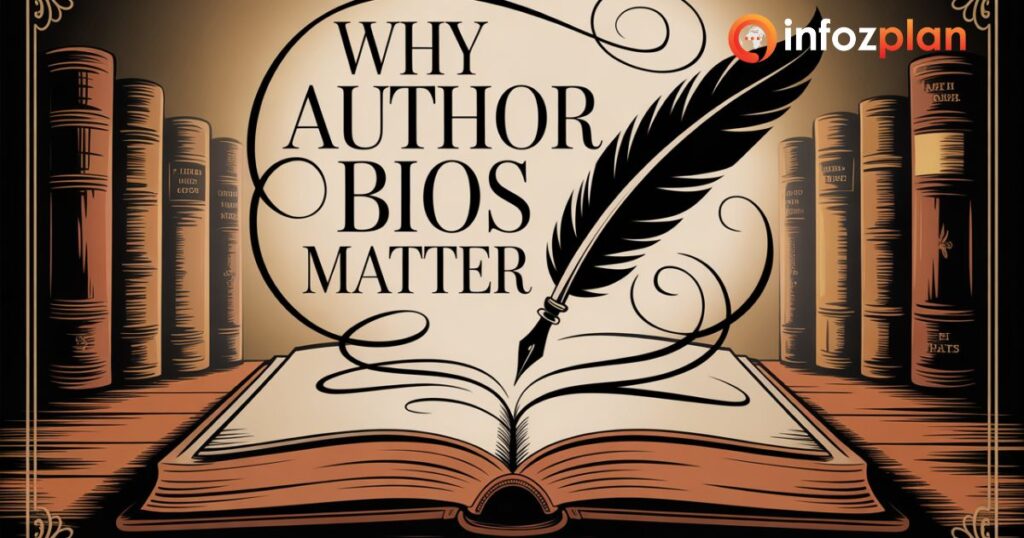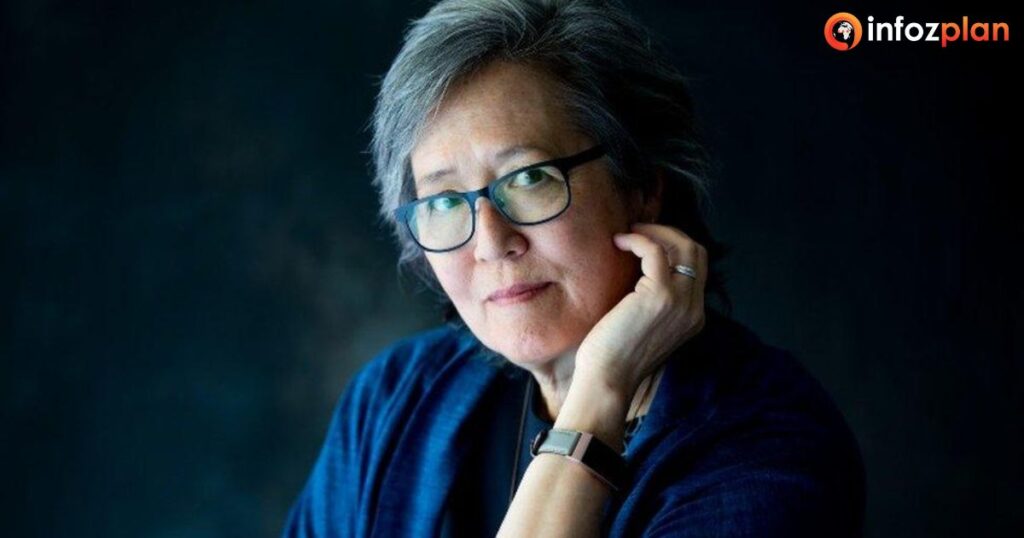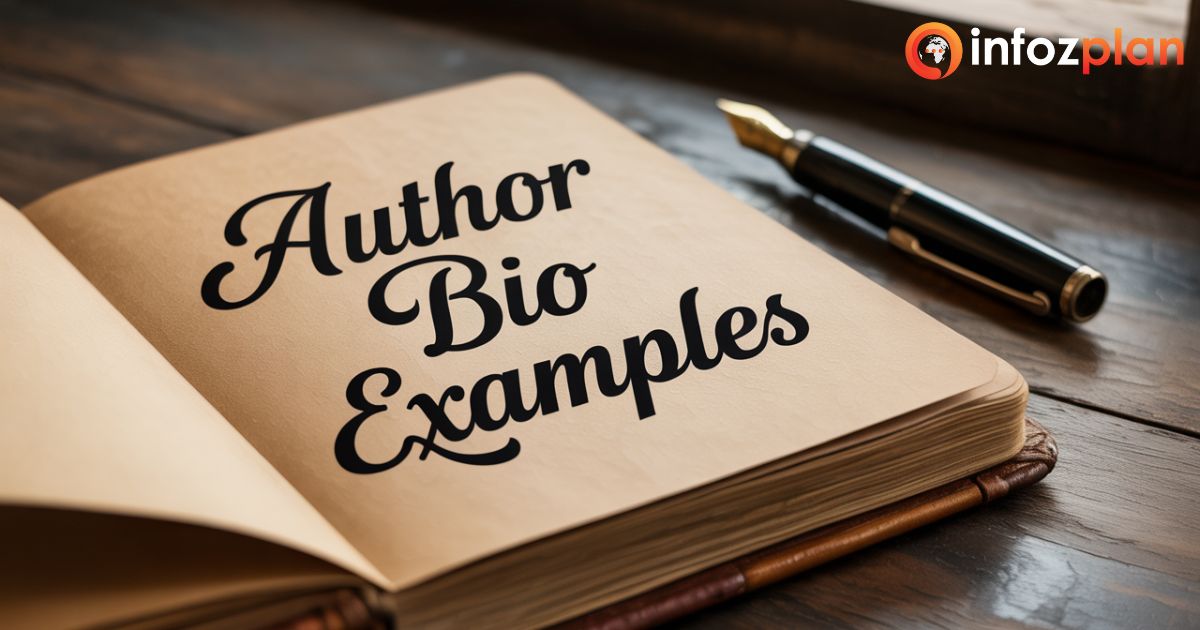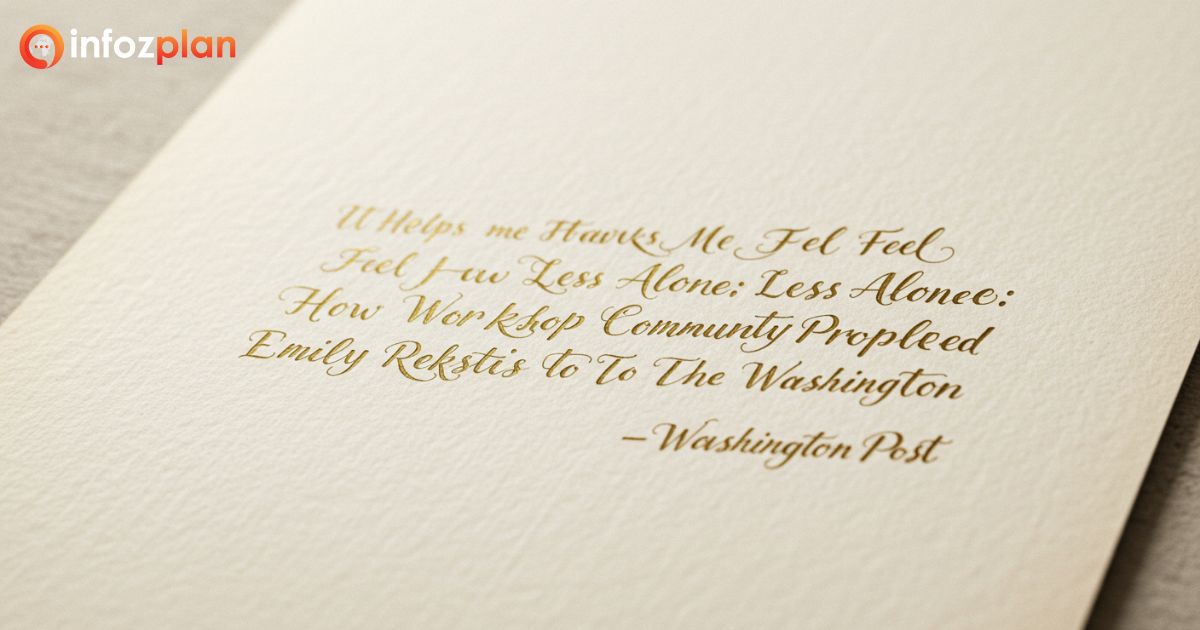Crafting the perfect author bio can feel overwhelming, whether you’re a debut novelist or a seasoned published author. An effective bio does more than just list accomplishments — it reflects your author personality, shares your journey, and builds a meaningful connection with readers. It also plays a powerful role in book promotion, especially in today’s competitive publishing industry.
The right words can elevate your credibility and make your work stand out. In this guide, we’ll explore top author bio examples and analyze what makes them successful. From tone to structure, these real-life bios offer valuable lessons that can help you write your own engaging and authentic introduction.
Why Author Bios Matter

An author bio isn’t just a short blurb. It’s your handshake with your reader. It tells them what kind of writer you are, where you’ve been, and what you care about. Whether you’re a published author or a debut novelist, your bio is your chance to make a first impression.
In the publishing industry, bios often appear on book covers, websites, and interviews. A good one can help with book promotion, build your writer’s platform, and attract media attention. It helps your author background come through in your voice.
What Makes a Great Author Bio?
A great author bio is clear, short, and meaningful. It shows your author achievements without bragging. It also uses a bio tone and style that matches your genre. If you write literary fiction, your tone might be elegant and serious. If you write for kids, it can be warm and fun.
Your bio should mention your books, book awards, and if you have any university affiliations or teach creative writing. Talk about your journey, hobbies, or what inspires you. Keep it genre-appropriate and true to your writing voice.
How We Selected These Author Bios
We didn’t just pick these names at random. We studied real bios from a mix of experienced and new writers. Each one was chosen for its style, message, and ability to reflect the writer’s story. The goal was to cover different tones, genres, and formats.
From fiction and non-fiction, serious to funny, these bios show a wide range. We looked at writing accolades, how well they communicate author personality, and how they support each author’s writing career.
Author Bio Analysis: Ruth Ozeki

Ruth Ozeki is a novelist, filmmaker, and Zen Buddhist priest. Her bio lists her books, including A Tale for the Time Being, which was shortlisted for the Booker Prize. Her work mixes thoughtfulness with calm, matching her spiritual background. Her book jacket bio shows a balance between her creative and personal side.
Her mention of Teaching creative writing at Smith College shows her deep roots in creative writing. Her author background and voice reflect in every sentence. It’s calm, clear, and wise, just like her books.
Author Bio Analysis: Jessica Andrews
Jessica Andrews is a debut novelist with two novels under her belt. She works across media and writes for top outlets like BBC and ELLE. Her bio is detailed, showing her as a rising star with strong author credentials.
She is active in literary magazine work and co-hosts a literary podcast. Her energy and growing list of writing accolades help position her as a serious name in the publishing industry.
Author Bio Analysis: Gretchen McCulloch
Gretchen McCulloch is a linguist and podcast host who makes language fun. Her book Because Internet explores modern language online. Her bio is short, playful, and smart.
She ends with a witty line: “She lives in Montreal, but also on the internet.” This reflects her author tone and writing voice perfectly. She turns her writing career into something both fun and informative.
Author Bio Analysis: Bryan Washington

Bryan Washington doesn’t try too hard. His bio lists where he’s published and his many book prizes. These include the Dylan Thomas Prize and an O. Henry Award. There’s no extra fluff—just proof.
His work in literary fiction speaks for itself. With so many writing accolades, he doesn’t need much else. It’s short but powerful, a great example of letting author achievements shine.
Author Bio Analysis: Ayanna Lloyd Banwo
Ayanna Lloyd Banwo leads with her roots—she’s from Trinidad & Tobago. Her author background is shown through education and early success. She’s pursuing a PhD and has strong university affiliations.
Her bio shows growth. From journals to her debut novel, it outlines her journey. Her writing credentials support her future as a powerful fiction and non-fiction voice.
Author Bio Analysis: Rainbow Rowell
Rainbow Rowell is a busy writer. From romance to comics, she covers it all. Her tone is warm and informal. She lists her works with humor, making her bio tone and style match her books.
She writes for Marvel and graphic novels, showing her range. Her voice and work are full of life. This makes her one of the strongest voices in genre-appropriate bio writing.
Author Bio Analysis: Elizabeth Lilly
Elizabeth Lilly writes children’s books. She’s also an illustrator, animator, and designer. Her bio is playful and simple, perfect for young readers. It reflects her creative spirit.
She talks about her past as a “daydreamer,” which fits her audience. Her home and her work are described in a way that sounds cozy and fun. She’s built a great writer’s platform through her author personality.
Author Bio Analysis: Chris Power
Chris Power keeps it short. He names two books and his home city—London. That’s all. Yet, it works. His author tone is quiet but strong. It suits his place in the literary fiction world.
This is a lesson: you don’t need to say everything. If your work is known and respected, a short bio still does the job. His bio shows how writing voice can come through even with fewer words.
Tips for Writing Your Own Author Bio
To write a great bio, start with your basics. Name your books, your roles, and your author credentials. Add something personal—where you live, what you love, or what inspires you. Then pick a tone that fits your work. Is your style funny? Bold? Quiet? Let it show.
Look at these 8 great author bio examples, analyzed. Do they sound the same? Not at all. That’s the key. Your bio should sound like you. Keep it clear, use good rhythm, and stay honest. Even if you’re just starting, tell your story with confidence.
Final Thoughts: The Power of a Well-Written Bio
Your author bio is more than a few lines. It’s part of your brand. Readers want to know who you are. So show them. Share your writing career and author personality with pride.
Think of your bio as your book’s handshake. Whether you’re an award winner or a debut novelist, a good bio helps build trust, draw in readers, and shape your future in the publishing industry. Take your time. Write it with care. And let your voice shine.
Conclusion
A well-crafted author bio isn’t just about listing facts — it’s about sharing your voice. Whether you’re a debut novelist or an established published author, your bio should reflect your journey, personality, and passion for writing. The author bio examples we explored show how different styles work for different writers. Focus on what makes you unique, stay true to your tone, and update your bio as your writing career grows. A strong bio builds author visibility, earns reader trust, and supports your presence in the publishing industry. So take your time, write with purpose, and let your story speak beyond the page.
FAQS
How to write an author’s bio?
Start with your name, your writing role or genre, any author credentials, and something personal or unique about you.
What is a good bio example?
A good bio is clear, shows your author personality, lists major writing achievements, and feels authentic to your voice.
How do I introduce myself as an author?
Say your name, the type of writing you do (like literary fiction or children’s books), and any published work or awards.
How do I write a short bio of myself?
Use 2–4 sentences to mention your background, books, author background, and one personal detail or interest.
How to write a 3 sentence bio?
In three sentences, share who you are, what you write, and a quick highlight of your writing career or goals.



